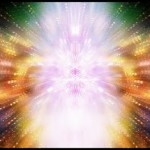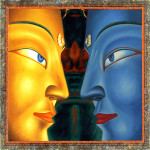Recent Comments
- Chodpa on The Place where the Primordial Speaks
- Chodpa on The Cuckoo of Presence
- Afzar on Bodhidharma’s teacher, Prajnatara
- Vajragoni on Audiobook is released
- Scott on Audiobook is released
-
Recent Posts
Categories
- A Darkness Visible
- A Docetic Assessment
- A Mystical Odyssey through the Sagathakam
- AI Creations
- Akṣayamatinirdeśasūtra
- Akṣhobhya’s Pure Land
- Ālaya-vijñāna
- Anūnatvāpūrṇatvanirdeśaparivarta
- Ariyapariyesanā Sutta
- Ascending the Noble Mountain of Primordial Perfection
- Asceticism
- Ashtavakra Gita in Light of the Unborn
- Audiobook
- Bankei Zen
- Beyond the Ascent
- Beyond the Rainbow Body
- Black Dragon Eye Mandala
- Bodhicitta
- Buddhadharma
- Buddhism’s Black Holes
- Buddhist Anecdotes
- Buddhist Hells
- Buddhist Meditations on the Tarot
- Chuang-Tzu
- Contemporary Musings
- Ḍākiṇī
- Dāsbodh
- Dharmakaya Abbey
- Dharmakaya Stick
- Divine Revelation
- Doctrine of the Void
- Dust Contemplation
- Ekacitta: Advanced Studies in Dark Zen
- Entry into the Dharmadhātu
- Eremitical Dhyani Meditations
- Exploring the Book of Revelation
- Gnostikos
- Hsin Hsin Ming
- Journey to the Center of the Mind
- Karma and Rebirth
- Korean Sŏn
- Kulayarāja Tantra—The Motherly Buddha
- Little Office of Our Lady of the Void
- LSD and Psychedelic Buddhism
- Māṇḍukya Kārikā
- Mañjuśrī Teaches Prajñāpāramitā
- Māra and Satan
- Meister Eckhart
- Mud and Water: Bassui Zen
- Mystagogia
- Nirvana
- Notes from the Iron Stupa
- Nothingness in Nāgārjuna and John of the Cross
- Obscure Religious Cults
- Preparation for the Afterlife
- Primordial Qigong
- Reflections on the Saṃdhinirmocana Sūtra
- Spirituality
- Springtime with Tozen
- Terma: A Mind Film by Vajragoni
- The Afterglow
- The Awakening of Faith
- The Bhagavad Gita
- The Book of Bodhi
- The Cloud of Unknowing in Light of the Unborn
- The Diamond Sutra
- The Divine Ātman
- The Divine Liturgy of Vajrasattva
- The Doctrine of Awakening
- The Dragon Mind of Zen Tarot
- The Elucidation of Consciousness
- The Experience of No-Self
- The Great Perfection of the Unborn Mind: A Book of Privy Counseling
- The Heart Sutra
- The Hermit's Den
- The Khaggavisāṇa Sutta: A Rhinoceros Horn
- The Lankavatara Sutra
- The Lankavatarian Book of the Dead
- The Lion's Roar of Queen Śrīmālā
- The Lotus Sutra
- The Mahāparinirvāṇasūtra
- The Naga Chronicles
- The Platform Sutra
- The Ratnagotravibhāgaśāstra
- The School of the Spirit
- The Secret Golden Light of the Unborn
- The Soul
- The Śūrańgama Sūtra
- The Sutra of Primordial Enlightenment
- The Tathāgatagarbhatārā Tantra
- The Udāna
- The Unborn Mind Mythos
- The Unborn Mind Sessions
- The Unborn Odyssey: A Novel
- The Vajrasamādhi Sutra
- The Vimalakirti Sutra
- The Yogasūtras of Patañjali
- The Zen Teaching of Bodhidharma
- The Zen Teaching of Instantaneous Awakening
- The Zen Teachings of Huang Po
- Theologia Mystica
- Tozen Teaching
- Tsung-mi: An Intimate Study
- Unborn I Ching
- Unborn Light Reiki
- Uncategorized
- Vasubandhu and the Absolute
- Wisdom from the Masters
- Wordsworth and Zen
- Yoga of the Manomayakāya
- Zen
- Zuowang
Archives
- October 2024
- August 2024
- February 2024
- January 2024
- December 2023
- November 2023
- October 2023
- September 2023
- August 2023
- July 2023
- June 2023
- May 2023
- April 2023
- March 2023
- February 2023
- January 2023
- December 2022
- November 2022
- October 2022
- September 2022
- August 2022
- May 2022
- April 2022
- March 2022
- February 2022
- January 2022
- December 2021
- November 2021
- October 2021
- September 2021
- August 2021
- May 2021
- April 2021
- March 2021
- February 2021
- January 2021
- December 2020
- November 2020
- October 2020
- September 2020
- August 2020
- May 2020
- April 2020
- March 2020
- February 2020
- January 2020
- December 2019
- November 2019
- October 2019
- September 2019
- August 2019
- June 2019
- February 2019
- January 2019
- December 2018
- October 2018
- August 2018
- April 2018
- March 2018
- February 2018
- January 2018
- December 2017
- November 2017
- October 2017
- September 2017
- August 2017
- May 2017
- April 2017
- March 2017
- February 2017
- January 2017
- December 2016
- November 2016
- October 2016
- September 2016
- August 2016
- July 2016
- May 2016
- April 2016
- March 2016
- February 2016
- January 2016
- December 2015
- November 2015
- October 2015
- September 2015
- August 2015
- July 2015
- June 2015
- May 2015
- April 2015
- March 2015
- February 2015
- January 2015
- December 2014
- November 2014
- October 2014
- September 2014
- August 2014
- May 2014
- April 2014
- March 2014
- February 2014
- January 2014
- December 2013
- November 2013
- October 2013
- September 2013
- August 2013
- May 2013
- April 2013
- March 2013
- February 2013
- January 2013
- December 2012
- November 2012
- October 2012
- September 2012
- August 2012
- May 2012
- April 2012
- March 2012
- February 2012
- January 2012
- December 2011
- November 2011
- October 2011
Meta
Monthly Archives: October 2011
Jesus and the Dharmakaya

Some modern sources wrongly make the assertion that the Dharmakaya (the absolute, imageless Buddha Body of Perfect Suchness within the Buddhaic Trikaya) is comparable to the Christian notion of the unseen Creator God, the one who has created all things, both visible and invisible, within the sphere of phenomenal reality. The Dharmakaya is not linked with any Eternalist-Creationist notion of some Divine Being that has formulated the created order; on the contrary, it is creation-less and existential-less and whose imageless (this includes all known phenomenal attributes of perception) and undivided kingdom of one’s True Self Nature (ref.,Tozen)—the Essential Truth Body, represents what cannot be expressed within carnal knowledge.
The Hero

One of the words tossed around willy-nilly in this dharma-ending age is “hero”. It seems we are inundated with apparent heroes every which way we turn: movie and comic book animated heroes, football and baseball heroes, all-armed forces personnel heroes, emergency responders like policemen, paramedics and firefighters, even the small child climbing a tree to save the life of an entrapped kitten—all are indelibly classified as being “a hero”.
Posted in Spirituality, Zen
Tagged Classical Greek, True Primordial Identity, Unborn, Unborn Light Adept
Leave a comment
AS IT IS

The present and active state of civil unrest* that has been occurring throughout the globe this year is indicative of what transpires when one wakes-up and sees things as they are—which, in this universal sense, has generated the impetus to rise up and do something about it; this translates into the now informed 99% of this saha realm rising up, challenging, and in many instances, overthrowing the status quo (in its various, archaic totalitarian and alleged democratic structures) of the 1%. Will these be truly liberating times…a long overdue resurrection from the pangs of human suffrage? Indeed, what will be revealed? A vast, evolutional leap in human consciousness and collective-liberated resolve; or will it be a decadent decline into former medieval and feudal systems, merely given a newfangled facade created by the latest technologies? We shall have to wait as this great drama continues to unfold.
Posted in Zen
Leave a comment
Two Fundamentals

In the Surangama Sutra, the Buddha expounds to Ananda about the two fundamentals. Essentially, they correspond to what we in UnbornMind Zen describe as the two principles: one is the moving principle—i.e., becoming attached and dependent upon all perceptional movement within the realm of phenomena. The other is The Unmoving Principle—the pure, nirvanic element of truth, suprapostional in nature, i.e., never concretized in positioned space or time, yet utterly dynamic in stature. You move and breathe and sleep in It, but you are not It. Were it not for your sudden stirring, It does not move; yet, your first rousing from bed in the morning is only made possible by Its empowering you to do so. It is motionless, yet It still roused Zarathustra from his slumber in the mountains. Meister Eckhart, the great Rhineland mystic wrote, “The eyes with which I see God, are the same eyes that God sees me.”
Posted in Zen
2 Comments
The Narrow Gate

Within the lore of Buddhism, rebirth as a human is considered very rare for someone located within the lower regions of the unwholesome, like a hell-dweller or a hungry ghost. In fact, there is a marvelous allegory found in the Majjhima Nikaya (129 Balapandita Sutta) that states it would be easier for a blind aged tortoise, rising from the depths of the ocean once every 100 years, to pass its head through a bobbling yoke on the tumultuous surface waves than for someone in these lower regions to experience rebirth as a human being. This is quite impossible, because as it states in the sutta, one is completely devoid of the Dharma within these damnable regions and hence no chance of ever gaining the proper buddha-gnosis to be reborn under favorable circumstances.
Posted in Zen
6 Comments
